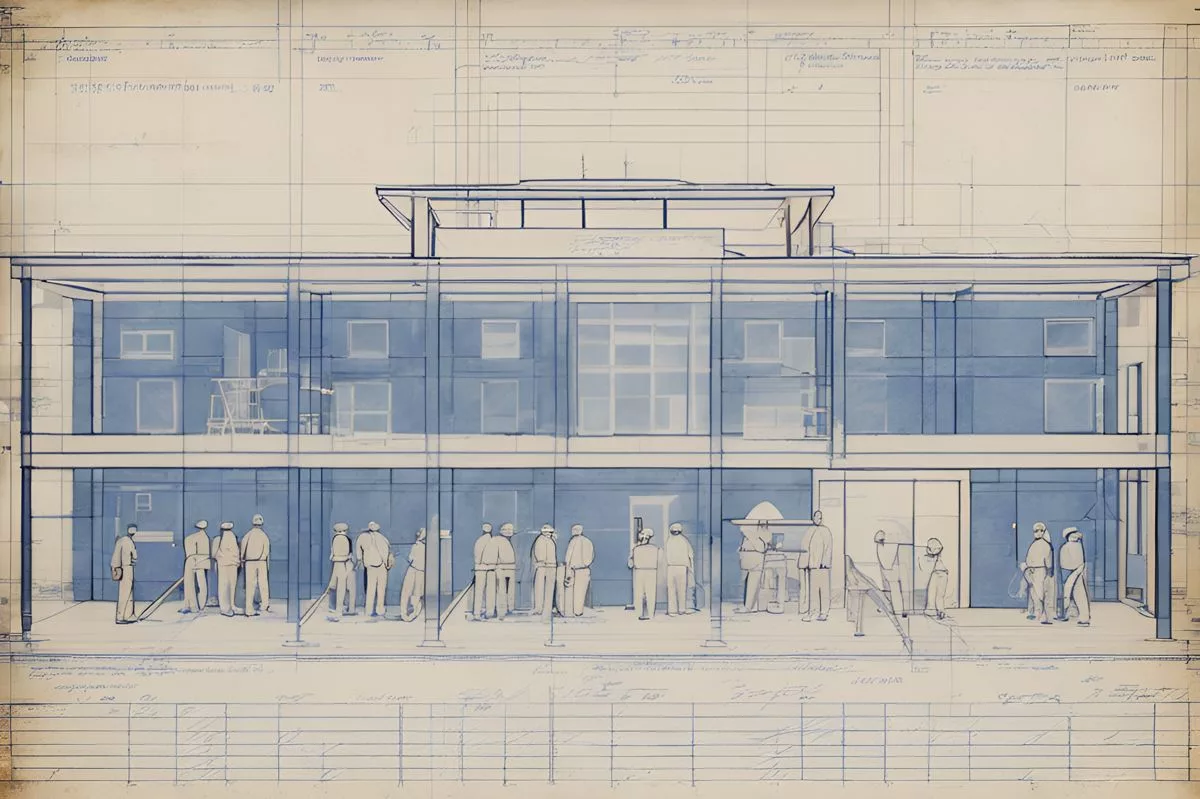The Western Cape Department of Health is pioneering healthcare initiatives by constructing new facilities such as the Klipfontein, Belhar, and New Tygerberg Central hospitals. These projects aim to improve healthcare accessibility and efficiency in the area, despite financial limitations and challenges. The Klipfontein Regional Hospital and Belhar Regional Hospital projects are set to be completed by 2033, while the New Tygerberg Central Hospital project has an estimated budget of R11 billion and is set to begin construction between 2028 and 2032. Despite financial obstacles, the department remains committed to its objective of providing accessible healthcare for all.
Pioneering Healthcare Initiatives in the Western Cape: The Department of Health in the Western Cape is spearheading a courageous, innovative endeavor, pledging to erect a series of new facilities, including the Klipfontein, Belhar, and New Tygerberg Central hospitals. These initiatives promise to revolutionize healthcare accessibility in the area. Despite financial limitations and unique challenges, the department remains steadfast in its commitment to enhancing healthcare.
The Department of Health in the Western Cape is spearheading a courageous, innovative endeavor. Despite grappling with acute financial limitations, the department remains steadfast in its resolve to erect a series of new facilities. Among these are three significant ventures that promise to revolutionize healthcare in the area.
The Klipfontein, Belhar, and New Tygerberg Central hospitals each demonstrate the department’s firm commitment to enhancing healthcare accessibility for inhabitants of the Western Cape. These ambitious ventures come with intricate challenges, as divulged by Dr. Laura Angeletti-du Toit, the department’s Chief Director of Infrastructure and Technical Management, during a recent update for the provincial legislature’s Standing Committee on Health.
Klipfontein Regional Hospital: A Pioneer of Transformative Healthcare
The inauguration of the Klipfontein Regional Hospital marked the launch of the department’s transformative healthcare plan. This initiative originates from the now-defunct GF Jooste Hospital in Manenberg. Initially, plans solely intended to refurbish the facility. However, recognizing the escalating healthcare needs of the community, the department decided to construct a larger, regional hospital.
The location of the new hospital was chosen after careful consideration due to space limitations. The hospital’s mission is to provide healthcare services to a broad range of communities, including Athlone, Gugulethu, Hanover Park, Manenberg, Mitchells Plain, and Philippi. This ambitious construction plan is set to occur in three phases, with its completion projected for 2033.
The Belhar Regional Hospital: A Vision of Enhanced Healthcare Efficiency
Running parallel to the Klipfontein project is the development of the [Belhar Regional Hospital](https://capetown.today/pioneering-progress-cape-towns-new-central-hospital-and-comprehensive-healthcare-expansion/). This initiative stems from the department’s strategic vision to divide Tygerberg Hospital into two separate facilities. The Belhar unit is slated to cater to the Tygerberg sub-structure and the eastern sub-structure of Khayelitsha, as well as the Stellenbosch sub-district.
This project addresses the pressing need for a regional hospital to accommodate the eastern parts of the metro, reducing the strain of long-distance travel to access healthcare services. Linked to the decommissioning of the Tygerberg facility, the project aims to differentiate between central and regional hospitals, in a bid to enhance healthcare efficiency. Similar to the Klipfontein project, the Belhar initiative is scheduled for completion by 2033.
The New Tygerberg Central Hospital: A Commitment to Elevated Healthcare Standards
Lastly, the New Tygerberg Central Hospital project was conceived as a response to the 2005 report by the Council for Scientific and Industrial Research (CSIR). The report revealed the declining state of the Tygerberg Hospital, suggesting it was no longer equipped to offer contemporary healthcare. Therefore, in 2009, the department resolved to renovate the Tygerberg Hospital, promising to maintain the existing building’s functionality until the new one is operational.
This project, with an estimated budget of R11 billion, exemplifies the department’s dedication to raising the bar in healthcare standards. The new hospital, similar in size to the Groote Schuur Hospital, is set to begin construction between 2028 and 2032.
Overcoming Financial Challenges to Ensure Healthcare Accessibility for All
However, these undertakings are not devoid of their unique challenges. Financial obstacles, particularly funding reductions from the national government, pose a significant threat to the department’s ambitious ventures. This problem is further exacerbated by the rapidly expanding population of the Western Cape, as the current provincial equitable share formula fails to accurately reflect this growth, leading to a budget shortfall.
Despite these hurdles, the Western Cape Department of Health remains firm in its objective. The department, leading the charge on these transformative projects, is undeterred, boldly envisioning a future where healthcare is accessible to all, and heralding a shift in the region’s healthcare landscape.
1. What are the healthcare initiatives being pioneered by the Western Cape Department of Health?
The Western Cape Department of Health is constructing new facilities, including the Klipfontein, Belhar, and New Tygerberg Central hospitals, in order to improve healthcare accessibility and efficiency in the area.
2. When are the Klipfontein Regional Hospital and Belhar Regional Hospital projects set to be completed?
The Klipfontein Regional Hospital and Belhar Regional Hospital projects are set to be completed by 2033.
3. Why was the Klipfontein Regional Hospital constructed?
The Klipfontein Regional Hospital was constructed due to the escalating healthcare needs of the community. Initially, the plan was to refurbish the now-defunct GF Jooste Hospital in Manenberg, but the department decided to construct a larger, regional hospital instead.
4. What is the purpose of the Belhar Regional Hospital?
The Belhar Regional Hospital is meant to cater to the Tygerberg sub-structure and the eastern sub-structure of Khayelitsha, as well as the Stellenbosch sub-district. This project addresses the pressing need for a regional hospital to accommodate the eastern parts of the metro, reducing the strain of long-distance travel to access healthcare services.
5. What is the estimated budget for the New Tygerberg Central Hospital project?
The New Tygerberg Central Hospital project has an estimated budget of R11 billion.
6. What challenges does the Western Cape Department of Health face in implementing these healthcare initiatives?
The department faces financial obstacles, particularly funding reductions from the national government, which pose a significant threat to the department’s ambitious ventures. This problem is further exacerbated by the rapidly expanding population of the Western Cape, as the current provincial equitable share formula fails to accurately reflect this growth, leading to a budget shortfall.












